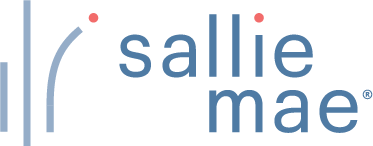5 Standout Law School Student Loan Lenders
Graduate to a better law school student loan
Once you've exhausted federal student loan options, you may need a private student loan to fill a gap in your financial aid package. Compare student loan rates from these top-rated lenders so you can go back to focusing on your law degree.
Once you've exhausted federal student loan options, you may need a private student loan to fill a gap in your financial aid package. Compare student loan rates from these top-rated lenders so you can go back to focusing on your law degree.
Standout Law School Student Loan Lenders From Our Partners
on College Ave's website
College Ave Law Student Loan
Min. credit score
Mid-Fixed APR
4.07-Variable APR
5.59-on College Ave's website
on Ascent's website
Ascent Law Student Loan
Min. credit score
Low-Fixed APR
5.09-Variable APR
7.22-on Ascent's website

on Sallie Mae's website
Sallie Mae Undergraduate Student Loan

Min. credit score
Mid-Fixed APR
4.50-Variable APR
6.37-on Sallie Mae's website
on Earnest's website
Earnest Student Loan Refinance
Min. credit score
650Fixed APR
5.19-Variable APR
5.99-on Earnest's website

on SoFi's website
SoFi Undergraduate Student Loan

Min. credit score
Mid-Fixed APR
4.44-Variable APR
5.99-on SoFi's website
Which law school student loan is right for you?
Law school costs average almost $67,000 annually, according to data from the American Bar Association. If you’ve exhausted free aid like scholarships to cover those expenses and are torn about which law school loan to borrow, federal loans are a safer bet. Opt for these if:
You have bad credit. Direct unsubsidized loans are not credit-dependent. You will need to pass a credit check to get PLUS loans for law school, but these standards aren't as strict as with private lenders. All eligible federal loan borrowers also receive the same interest rate, regardless of their credit score.
You want flexible repayment options. Law students finish school owing an average of $145,500 in student debt, according to the National Center for Education Statistics. Federal loans offer more repayment options to handle that debt load, such as income-driven repayment plans, and and may be eligible for law school loan forgiveness or repayment programs.
Private student loans may make sense — and save you money — if you have excellent credit and don’t think you’ll need or qualify for federal loan benefits.
For example, repaying $145,500 in grad PLUS loans with a 6.28% interest rate would cost $196,305 over 10 years. Opting for private loans with an interest rate of 5% would drop that amount to $185,191. The PLUS loan would also come with an origination fee above 4%; most private lenders don’t charge these fees.
Monthly payments on that much debt would be roughly $1,500 for private loans and $1,565 for PLUS loans. Either might be unaffordable if you choose to be a legal services attorney, public defender or prosecutor, whose median starting salaries range from $48,000 to $58,000, according to the National Association for Law Placement. But with federal loans, income-driven payments at that salary could be closer to $250, and Public Service Loan Forgiveness could erase the balance after 10 years.
Projected starting salaries are higher if you plan to practice in the private sector, with a median of $155,000 according to NALP. Wages rise even more if you join a Big Law firm. Still, opting for federal loans can protect you if you don’t land the job or salary you expect. And if you do, you can always refinance law school loans after graduating to recoup some savings.
How to take out loans for law school
Taking out loans for law school requires only a few steps. If you applied for financial aid as an undergrad, you’ll likely know what to do — though there are a couple of differences.
1. Fill out the FAFSA
You must complete the Free Application for Federal Student Aid, or FAFSA, to receive all types of federal financial aid, including work-study and student loans. Many private scholarships and grants require the FAFSA as well.
When completing the FAFSA, indicate that you’re going to be or already are a graduate student. This means you don’t have to include your parents’ information on the form; it also increases your borrowing limits.
2. Complete other required applications
In addition to the FAFSA, some law schools may make you submit the CSS Profile to receive nonfederal financial aid. Alternatively, your school might require an aid application that’s unique to its program.
Unlike on the FAFSA, you may need to provide your parents’ financial information on these forms to receive institutional scholarships or grants. Double-check the application process with the school’s financial aid office — including when its priority filing deadline is — so you don’t miss out on free money.
3. Work directly with private lenders
You don't need to complete the FAFSA for private student loans. If you've decided a private student loan makes sense for you, apply directly with the lender. The lender will likely require proof of your identity, income and law school you're attending, among other information.
Each lender has its own underwriting standards. Be sure to shop around and compare interest rates. You may need a co-signer to get the best possible deal.
To recap our selections...
NerdWallet's Standout Law School Student Loan Lenders
- College Ave Law Student Loan: Excellent for Excellent for private student loan
- Ascent Law Student Loan: Excellent for Excellent for private student loan
- Sallie Mae Undergraduate Student Loan: Excellent for Excellent for private student loan
- Earnest Student Loan Refinance: Excellent for Excellent for private student loan
- SoFi Undergraduate Student Loan: Excellent for Excellent for private student loan